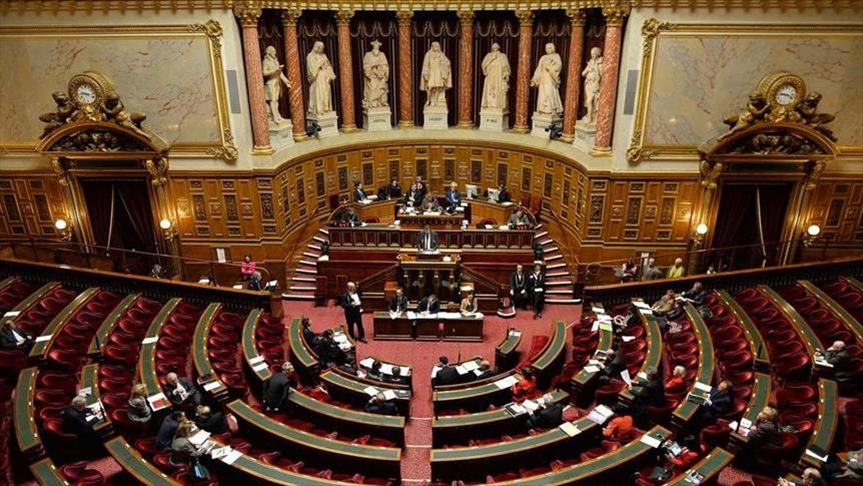France adopts bill allowing return of 'ill-gotten' assets
Bill provides framework for agency to carry out restitution of assets fraudulently acquired by foreign leaders

PARIS
France’s National Assembly unanimously adopted a bill Tuesday aimed at reforming and increasing the country’s official development assistance (ODA) to partner countries to 0.55% of gross national income.
The bill also creates a new mechanism for the French Development Agency to carry out restitution of “ill-gotten” property and assets fraudulently acquired by foreign leaders and using the funds towards the populations or countries of origin where the money was stolen from.
It would be thus mandatory for the French government to return the proceeds from the sale of such goods, assets and property confiscated from the representatives of foreign countries convicted of money laundering or related financial crimes to the concerned foreign states. Under the existing laws, the revenues from the sale of such confiscated property are retained by the government and diverted to the general state budget.
The amendment related to “ill-gotten” goods was adopted by the National Assembly within the framework of the development programming bill on Feb.19. The bill will now move to the French Senate and then parliament before becoming law.
The question of restitution arose after several judicial proceedings were opened in France involving the ill-gotten assets by foreign leaders, most notably after a French court in 2017 found Equatorial Guinea’s Vice President Teodorin Nguema Obiang Mangue guilty of money laundering and embezzlement of funds worth nearly 150 million euros.
The court sentenced him to a three-year prison term with a 30-million-euro penalty and ordered the seizure of his assets including a fleet of luxury cars and a six-floor mansion in Paris costing more than 107 million euros.
In December last year, the International Court of Justice rejected Equatorial Guinea’s claims that the mansion could not be confiscated as it had diplomatic immunity and ruled in France’s favor to carry out criminal proceedings and the seizure of the property.
Activists and non-profit organizations like Transparency International France and Sherpa, who had initiated the case against Obiang in 2008, had argued for a new legal framework in France for restitution and disbursement of funds.
In Obiang’s case, it was argued that money generated by selling the seized assets if sent back to Equatorial Guinea would land straight in the coffers of his family and allies who have been ruling the country since 1979.
The new framework adopted in the development bill establishes a specific budgetary program for the revenues from the sale of “ill-gotten” assets and puts the French Development Agency in charge of the disbursal of funds by financing development projects in coordination with the partner country.
Transparency International in a statement said with the adoption of the bill, “France has the opportunity to propose an exemplary model for the restitution of illicit assets that can inspire many other countries and deal a severe blow to foreign bribery.”
It however warned of strengthening the system further and maintaining transparency to “ensure that the funds, once returned, do not fall into the channels of corruption.”
Anadolu Agency website contains only a portion of the news stories offered to subscribers in the AA News Broadcasting System (HAS), and in summarized form. Please contact us for subscription options.







